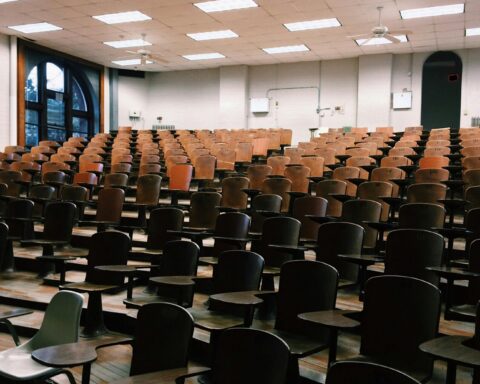Look at any online newspaper or magazine story about Syrian refugees and then read the comment section—if you dare. The comments range from sarcastic to racist and accuracy is not a prerequisite for participation.
Many of the comments sound something like this: the refugees will be living off the taxpayers and we’ll be paying for them for years to come.
It’s time for a reality check.
Economic contributions of refugees
A Simon Fraser University study released in December calculated that Syrian refugees coming to B.C. will contribute approximately $563 million in local economic activity over the next 20 years.
Canadian Business published an article on Sept. 14, 2015 with the headline “Why Canada should welcome more Syrian refugees—a lot more.” Canadian Business isn’t usually on the left of the political spectrum. Its argument is simple: it makes economic sense.
The article states, “Casting refugees as freeloaders may be politically expedient but it lacks a basis in fact. Between 1979 and 1981, Canada accepted 60,000 “boat people” from Southeast Asia. Within a decade, 86 per cent of those former refugees were working, healthy and spoke English with some proficiency, achieving the basic criteria for success.”
Syrian refugees coming to B.C. will contribute approximately $563 million in local economic activity.
It also explains that refugees were less likely to use social services and more likely to have jobs than the average Canadian. “They weren’t a drain on the taxpayer—they were taxpayers,” it states.
Carl Nicholson, executive director of the Catholic Centre for Immigrants in Ottawa, told me a few months ago that Vietnamese “boat people” in Ottawa — former refugees themselves — are now stepping up to financially support Syrian refugees.
Most refugees aren’t dependent on government support
Other online comments lump all refugees as being in the government-assisted class, and that too requires a reality check.
There are three refugee programs in Canada: government-assisted, private sponsorships, and blended sponsorships.
In the Government Assisted Refugee (GAR) program, the federal government pays the cost. There is no government money in the Private Sponsorship of Refugees (PSR) program and only approximately 40 per cent in the blended program.
The blended program has only been around since 2013 and the Mennonite Central Committee (who organizes much of the related resettlement activity) has worked almost solely with Mennonite churches. With the incoming Syrian refugees, the Committee is swamped.
Over the last months, it has worked with churches of all denominations and groups of citizens unaffiliated with any church who are getting involved in refugee sponsorship for the first time. With this wave of new players, clearly there is room to expand this program.
There is no government money in the Private Sponsorship of Refugees (PSR) program.
The Harper government was planning to reduce the GARs’ commitment by about nine per cent, while the new federal government is now talking about increasing the number of Syrian refugees in all three categories from 25,000 by February 29 to 50,000 by December 31, 2016.
The cost of supporting GARs is the equivalent of the provincial welfare rate for an individual or family. That could range from $27,000 to $30,000 for a family of four.
But here’s a little-known fact: any government subsidy ceases immediately upon the refugee securing employment. And, in any event, it lasts for only 12 months.
Until the Syrian refugee crisis, refugees had to repay the cost, with interest, of their airfare to Canada. That has been waived for Syrian refugees and refugee advocates are lobbying to make that standard practice for all refugees. The federal government says it will have new regulations in place by mid-2016.
We must help GARs establish themselves in Canada
More than 50 per cent of PSRs had earnings in their first year in Canada, compared to only 14 per cent in the GAR category. In their second year, the percentage increased to 70 and 42 per cent respectively. According to Immigration, Refugees and Citizenship Canada data, there’s little difference in employment earnings over time. Data from 2003 showed that a PSR who has been in Canada for 15 years had average employment earnings of $30,885 compared to $28,901 for GARS.
The numbers reflect the fact that PSRs have a network as soon as they arrive, plus the services of government-supported immigrant settlement agencies. GARs have settlement agency assistance alone to help them integrate into the community. This needs to change.
Refugee advocates are pushing the new federal government to capitalize on private sector interest, but not to depend on it. The premise of private sponsorship is to add more refugees to the mix, not to replace the government-sponsored Resettlement Assistance Program (RAP).
With this wave of new players, clearly there is room to expand this program.
With communities that have never sponsored refugees now fundraising for Syrian refugees, there’s the potential to expand the RAP program to new communities. In North Bay Ontario, we have a Canadian Forces Base with the capacity to house refugees temporarily until they’re settled in the community.
There’s similar capacity at bases across Canada and if they were put to use, refugees would be more evenly spread across the country instead of just a few designated communities.
The federal government should capitalize on this new energy sweeping the nation and add capacity to the RAP program by bringing more willing communities into the available pool.
Don Curry is the president of Curry Consulting, a company providing immigration solutions for rural and northern Canada. He was the founding executive director of the North Bay & District Multicultural Centre and served in that capacity for eight years. He can be reached at [email protected]
Don Curry is the President of Curry Consulting, which provides immigration solutions for rural and northern Canadian municipalities, and an NCM director (2022 - 23). He is also the Founding Executive Director of The North Bay & District Multicultural Centre, a multi-award winning immigrant settlement agency with offices in North Bay and Timmins. It is the lead agency for the Local Immigration Partnership project, the North Bay Newcomer Network and the Timmins Local Immigration Partnership.





